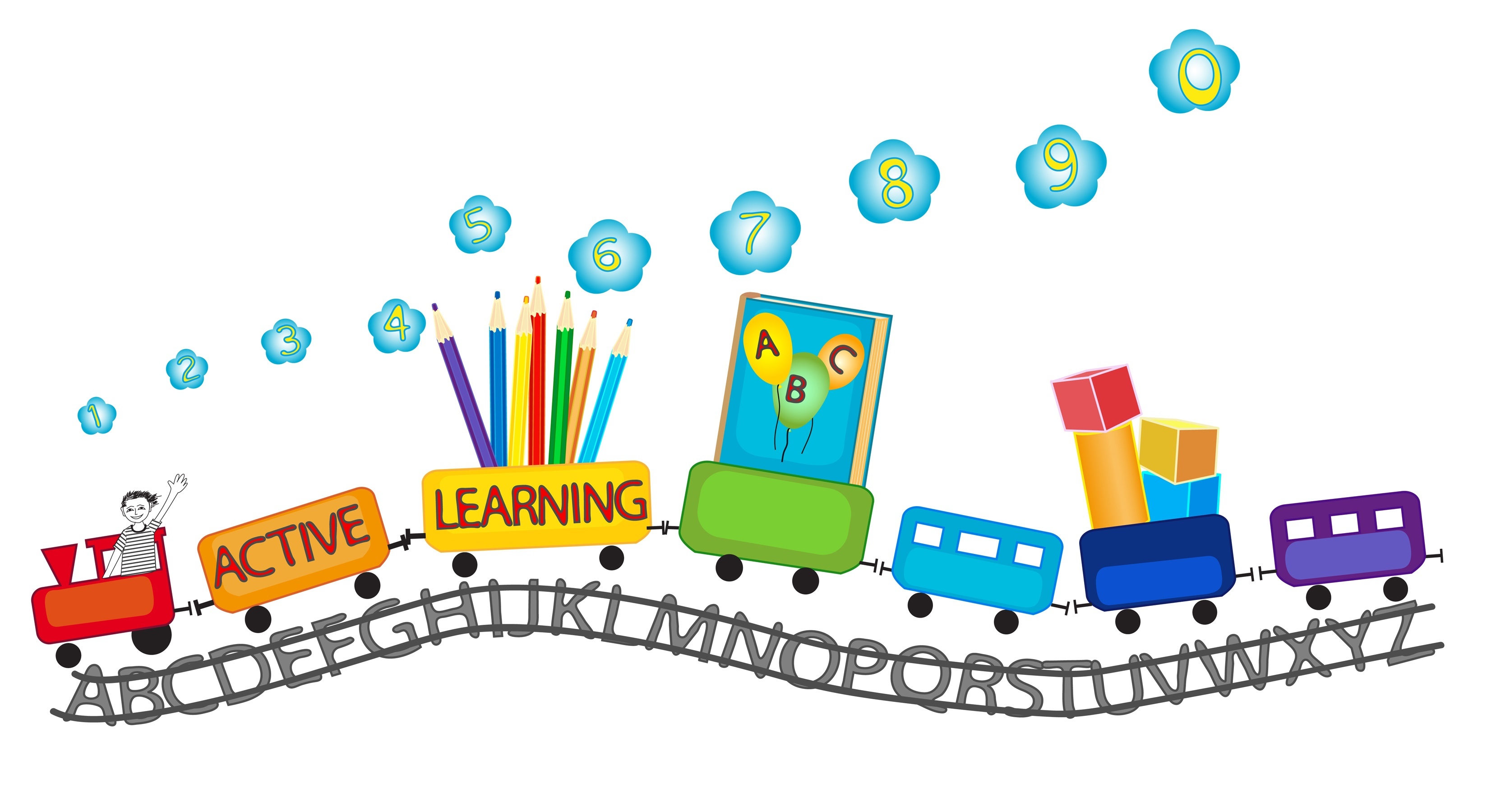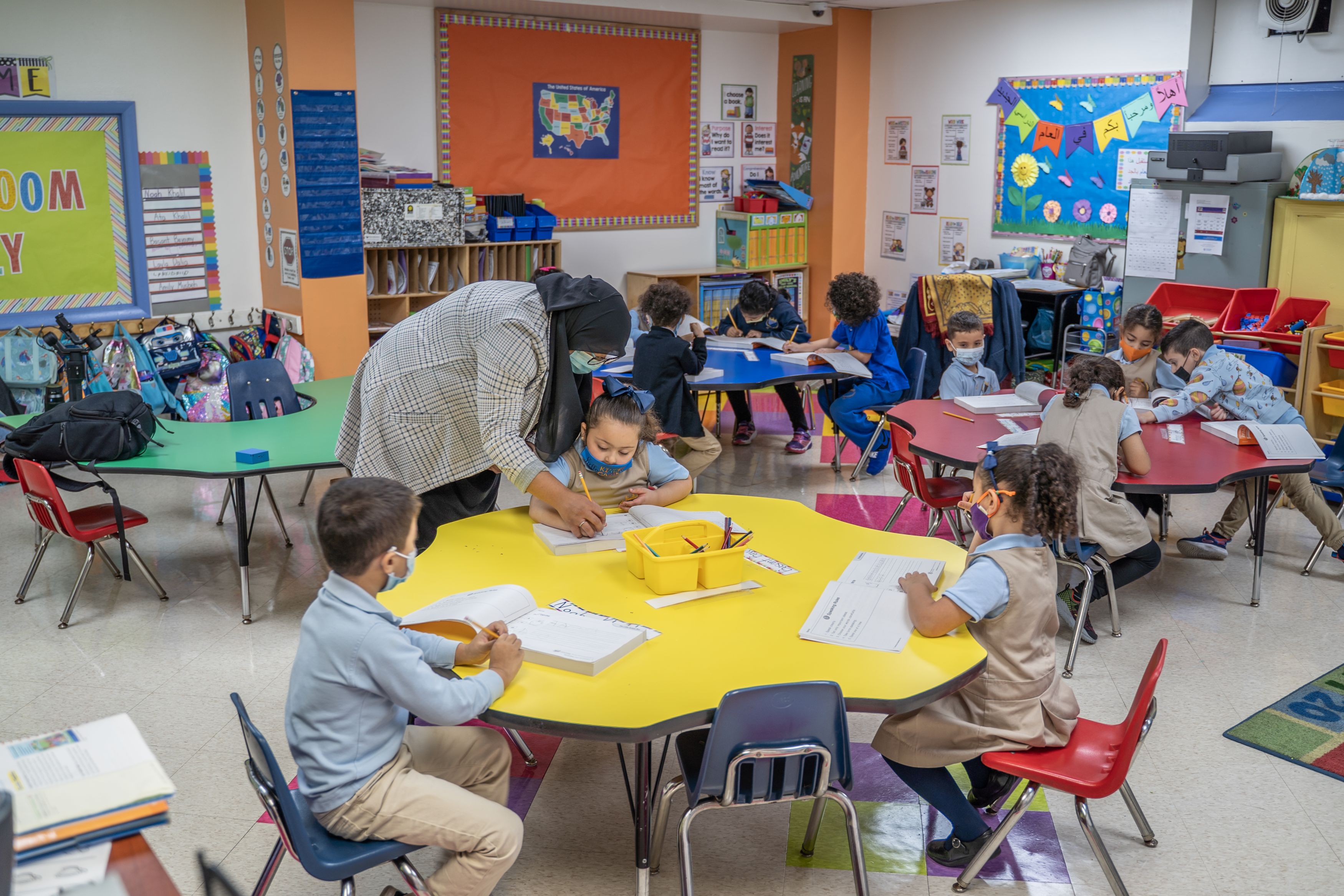 Wycliffe School
Wycliffe School

“Every child should have the opportunity to grow up in a setting that values children, that provides conditions for a safe and secure environment, and that respects diversity. Because children are both the present and the future of our nations, they have needs, rights, and intrinsic worth that must be recognized and supported. Children must receive appropriate nurture and education within and outside their families from birth onward if they are to develop optimally.” from the Association for Childhood Education International (ACEI)
Our Early Childhood Programs
RSA Re-K 3 and Pre-K 4 programs provide a loving and joyful environment focused on the whole child. Our programs are designed to foster the spiritual, social, cognitive, and physical development of each student. Our preschool is staffed by nurturing, experienced teachers.
Children are taught to inquire about their surrounding through learning centers, project based learning and energetic songs . Social development is encouraged through structured and unstructured cooperative play. An emphasis is placed on the development of phonemic awareness skills. Reading, writing, and math readiness skills are taught through phonics-based curricula. Students participate in multi-sensory learning centers that focus on meeting the needs of different learning styles.
Preschoolers participate weekly in physical education classes, art class, Arabic class, Quran memorization and technology instruction via iPads, and story time in the class library.
PRE-KINDERGARTEN CURRICULUM:
RSA offers two programs: Preschool (3 years) and TKG (4 years).
Students are taught using the "Creative Curriculum" that is aligned with the NJ State Standards. Students are divided into two separate Pre-K groups based on their ages. The philosophy behind the Creative Curriculum is that young children learn best by doing. Learning isn't just repeating what someone else says; it requires active thinking and experimenting to find out how things work and to learn firsthand about the world we live in. In their early years, children explore the world around them by using all their senses (touching, tasting, listening, smelling, and looking). In using real materials such as blocks and trying out their ideas, children learn about sizes, shapes, and colors, and they notice relationships between things. Our curriculum identifies goals in all areas of development, such as:
Social : To help children feel comfortable in school, trust their new environment, make friends, and feel they are a part of the group.
Emotional : To help children experience pride and self-confidence, develop independence and self-control, and have a positive attitude toward life.
Cognitive : To help children become confident learners by letting them try out their own ideas and experience success, and by helping them acquire learning skills such as the ability to solve problems, ask questions, and use words to describe their ideas, observations, and feelings.
Physical : To help children increase their large and small muscle skills and feel confident about what their bodies can do.
Academic Areas
Reading/Language Arts: Students will master letter recognition, initial consonant sounds, rhyming, basic vocabulary print concepts, oral reading (emergent readers, poetry, and class books), and story comprehension. The "Scott Foresman" curriculum will be used for Pre-Kindergarten because it will enhance students with the Literacy Program.
Writing/Fine Motor: Engage in pre-writing types of activities that may include rainbow writing, tracing, play-dough, painting. Also, write first upper and lower case letters, and numbers. Students will begin to use scissors appropriately to cut on a line and learn about the various shapes such as a square, circle and triangle.
Math: Incorporating "Euereka 2 Math" and the Singapore curriculum will help students learn about number recognition, rational counting, one-to-one correspondence, number concepts (sets of objects for each numeral), sorting, patterning, graphing—with pictures, sizing, operations, measurement, and shape recognition .
KINDERGARTEN CURRICULUM:
RSA's Kindergarten curriculum is carefully framed around research-based knowledge of how young children grow and learn and is both age and individually appropriate. The curriculum framework enhances the wide range of abilities and predictable patterns of growth and maturation that occur in children and supports the unique learning modalities reflected in the multiple intelligences of every child. The classroom will be using the "Scotts Foresman" Reading/Writing and "Everyday Mathematics" curriculum within the school year.
Academic Areas
Reading/Language Arts: RSA curriculum assumes the integration of reading, study of literature, study of informational text, writing, speaking, listening, and language (conventions, vocabulary and grammar). All the elements are meant to function together; each is incomplete without the others. The curriculum is based on Core Curriculum Content Standards. The K Language Arts program is typically divided into three “blocks” which help teachers deliver a balanced literacy approach: Reading (read aloud, shared reading, guided reading, and independent reading), Writing Workshop (mini-lessons and conferencing) and Word Study (spelling, phonics and vocabulary). Leveled books, mentor texts and trade literature are used for reading and writing instruction.
Math: The Kindergarten topics of study in mathematics as well as the connecting essential questions and enduring understandings are as follows:
- Number Sense
- Numerical Operations
- Measurement & Data
- Geometry
Kindergarten students will use numbers, including written numerals, to represent quantities and to solve quantitative problems, such as counting objects in a set, counting out a given number of objects, and comparing sets or numerals. Students choose, combine, and apply effective strategies for answering quantitative questions, including quickly recognizing the cardinalities of small sets of objects, counting and producing sets of given sizes, counting the number of objects in combined sets, or counting the number of objects that remain in a set after some are taken away. Students will practice foundational skills such as rote counting, along with practicing counting skills forward and backward, and from numbers other than 1. Students will work deeply with the numbers 1-20, in order to promote a deep conceptual understanding of those numbers and the relationships between them.
Other concepts or subjects to be explored and integrated in Pre-K & Kindergarten : Social Studies, Character Education, Science, Health, Music, and Art. Throughout each month, students will be learning about different themes. Some of the themes that will be taught are: Fall/Different Seasons, All About Me, Community helpers, Transportation, Dr. Seuss, My 5 Senses, Sea Creatures and many more.
Islamic Studies: To build a basic fundamental understanding of Islam, Allah, and the prophet Muhammad (SAW). To help your child develop a love for Allah, Islam, and the prophet (SAW) by teachings, stories, and Hadith. To respect their elders, honor Islam, Allah, the prophet (SAW), their parents, and all adults they come across. Students will follow the path of Islam by learning some Islamic manners and moral habits. All students will have the opportunity to learn daily Duaas as well.
